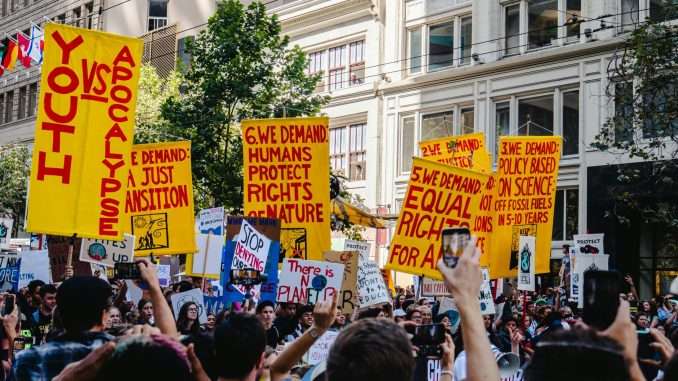
The world is experiencing unprecedented political, economic, and ideological upheaval. From the ongoing war in Ukraine to the long-standing Israeli-Palestinian conflict, from deep partisan fractures in U.S. politics to growing skepticism about British governance, the global order appears increasingly fragile.
Trade wars, shifting alliances, and controversies surrounding foreign aid further expose the instability of international cooperation.
For Africa, this is more than just global turbulence, it is a call to action. As the world grapples with uncertainty, the continent stands at a crossroads: Will it remain a passive observer, or will it seize this moment to redefine its destiny through self-reliance, unity, and prosperity?
A Fractured Global Order: A Catalyst for African Agency
The geopolitical landscape is shifting. The U.S.-China trade rivalry, Europe’s energy crises, and the ideological battles within the West have diverted attention from long-standing international commitments. Even development aid—often presented as a lifeline for Africa—is being reassessed. The reduction of foreign funding, exemplified by changes in U.S. foreign policy, has sparked debates about dependency. Critics argue that aid often comes with strings attached, reinforcing cycles of subservience rather than empowerment.
While humanitarian assistance addresses immediate crises, it rarely tackles systemic issues such as corruption, inadequate infrastructure, or unfair trade policies.
For Africa, this presents both a challenge and an opportunity. The reduction in aid, while destabilizing in the short term, could serve as a wake-up call: Why should the continent continue outsourcing its solutions to external actors when it holds the keys to its own liberation?
Breaking Chains: From Mental Slavery to Intellectual Revolution
Africa’s first step toward self-determination is dismantling the colonial mindset that equates progress with foreign validation. For too long, the continent’s narrative has been shaped by outsiders, often portraying it as a land of poverty, conflict, and helplessness. This distortion ignores Africa’s rich cultures, innovative spirit, and vast potential.
The “mental slavery” that still lingers manifests in leadership that prioritizes foreign interests over local needs, in education systems that undervalue indigenous knowledge, and in economies structured to export raw materials instead of building industrial capacity.
To reclaim agency, Africa must invest in its most valuable resource: its people.
With Africa’s youth population expected to reach one billion by 2050, the continent needs education systems that promote critical thinking, technological literacy, and entrepreneurship.
Countries like Rwanda, which is positioning itself as a tech hub, and Kenya, with its thriving Silicon Savannah, exemplify this shift. By nurturing homegrown talent, Africa can transition from being a consumer of foreign solutions to a global innovation powerhouse.
Unity as Power: The Case for Pan-Africanism 2.0
Fragmentation has long been Africa’s Achilles’ heel. Colonial borders, ethnic divisions, and linguistic barriers have hindered collective action.
However, the African Continental Free Trade Area (AfCFTA)—the world’s largest free trade zone by participating countries—offers a path forward. Currently, intra-African trade accounts for just 15% of the continent’s total trade, compared to 67% in Europe. Yet, AfCFTA has the potential to unlock $3.4 trillion in GDP by 2030.
Imagine an Africa where Nigerian tech startups collaborate with South African financiers, Ethiopian manufacturers supply Ghanaian markets, and Senegalese solar power fuels industries in Kenya. Achieving this vision requires bold political leadership.
Leaders must prioritize regional integration over personal gain, combat corruption, and invest in cross-border infrastructure. Citizens, too, must demand accountability, transparency, and an end to the “beggar mentality” that has long sustained dependency.
Beyond Aid: Building Sustainable Systems
While foreign aid has played a role in Africa’s development, it cannot replace self-sufficiency. Africa loses an estimated $89 billion annually to illicit financial flows—more than it receives in aid and investment combined. Addressing this hemorrhage requires strong governance, fair tax policies, and strict anti-corruption measures.
Some African countries have demonstrated that accountable institutions can translate natural resources into broad-based prosperity. Botswana and Mauritius, for instance, have built stable economies through transparent governance and sound policies.
Moreover, Africa must rethink its economic models. Agriculture, which employs 60% of Africans, remains underfunded and inefficient. By investing in agro-processing zones, climate-smart farming practices, and access to microloans, the continent can transform rural economies. Renewable energy projects, such as Morocco’s Noor Solar Plant and Namibia’s green hydrogen initiatives, also highlight Africa’s potential to lead the global transition to sustainable energy.
Crafting the Africa We Want
The African Union’s Agenda 2063 envisions a continent that is “integrated, prosperous, and peaceful.” Achieving this goal requires more than rhetoric—it demands immediate and collective action. Here are key steps Africa must take:
1. Leverage the Demographic Dividend: Invest in youth through STEM education, vocational training, and startup ecosystems.
2. Strengthen Governance: Combat corruption, uphold term limits, and promote civic engagement.
3. Prioritize Intra-African Collaboration: Accelerate AfCFTA implementation, harmonize trade policies, and invest in transport and digital networks.
4. Diversify Economies: Move away from raw material exports by investing in value-added industries, tech innovation, and sustainable tourism.
5. Amplify Cultural Influence: Celebrate Africa’s arts, languages, and heritage as instruments of soft power on the global stage.
The ongoing global crises have exposed the failures of old paradigms. For Africa, this is not a moment for despair but for bold action. The continent does not need to mimic Western models or seek approval—it must chart its own course.
By embracing unity, innovation, and self-determination, Africa can transition from being a pawn in global politics to a powerhouse of progress.
The world’s turmoil presents an opportunity for Africa to rewrite its story on its own terms. This century can be the era when Africa, rising through its own efforts, becomes synonymous with resilience, creativity, and unmatched potential.
The Africa we want is not just a dream—it is a choice. And the time to choose is now.
Olugbenga George is a journalist and Chief Executive at Ikona Media Concepts Ltd., the promoters of Ikona TV News.
He is also the President of the Coalition of Young Compatriots in Africa (CYCA).
He can be reached via email: gbsamson37@gmail.com.
